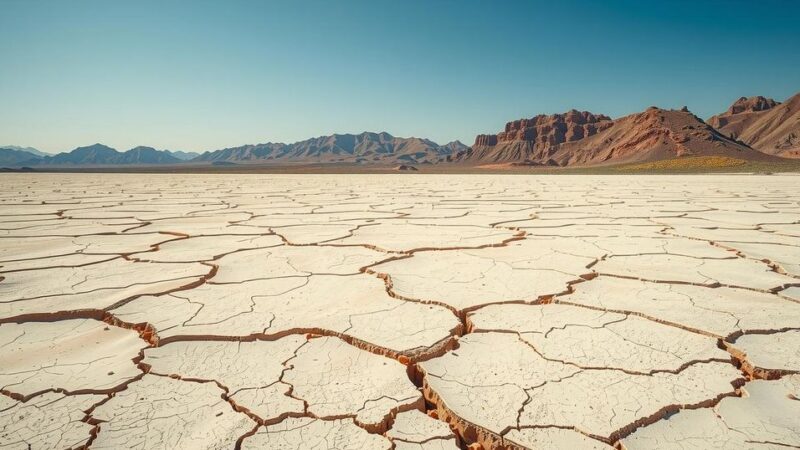A report by Transparency International reveals that systemic corruption in sub-Saharan Africa significantly undermines climate action efforts. Corruption diverts crucial climate funds and hampers governance, necessitating robust anti-corruption frameworks. While some nations have improved, many remain deeply affected by corruption, affecting their ability to implement climate initiatives effectively, which poses a threat to both the environment and climate advocates.
According to a recent report by Transparency International, corruption in sub-Saharan Africa fundamentally undermines climate action. Released on February 11, 2025, the report titled “2024 Corruption Perceptions Index: Corruption is Playing a Devastating Role in the Climate Crisis” shows how inefficacious anti-corruption measures impede progress in climate change mitigation efforts. Countries require extensive climate financing to implement their nationally determined contributions (NDCs) to the United Nations, yet corruption poses a substantial barrier to achieving these goals.
The Corruption Perceptions Index (CPI) ranks 180 countries based on perceived public sector corruption, ranging from 0 (highly corrupt) to 100 (very clean). The report highlights that countries like Seychelles (72), Cabo Verde (62), Botswana (57), and Rwanda (57) exhibit relatively better scores. In contrast, nations such as Equatorial Guinea, Eritrea, Somalia, and South Sudan, which are profoundly affected by climate change, also rank among the most corrupt, jeopardizing their climate action plans.
The report details how corruption erodes governance, undermines law enforcement, and diverts critical funds intended for climate initiatives. In nations where corruption is rampant, environmental decision-making tends to lack transparency, leading to biased policies and environmental degradation. For instance, Libya’s situation is exacerbated by corruption, causing further detriment due to environmental challenges like extreme heat and drought.
In Eswatini, unauthorized government expenditures and inaction from the Anti-Corruption Commission continue to obstruct progress in tackling corruption. The severity of climate change further complicates the situation; even with climate finance, effective governance remains a hurdle. Meanwhile, South Africa, although engaged in a just energy transition with global partners, faces ongoing concerns regarding corruption in public utilities.
Notably, corruption is linked to weaker environmental policies and a lack of adequate protections, as seen in Zambia’s illicit timber trade. This practice, involving senior officials, has reportedly generated vast sums in bribes. The report also addresses the dangerous climate for environmental defenders, who often encounter violence and intimidation in corrupt states, with several being murdered in recent years.
Maira Martini, chief executive of Transparency International, emphasized the critical need for global action against corruption to bolster climate initiatives. “Governments and multilateral organizations must embed anti-corruption measures in climate efforts to protect funding and rebuild trust,” she asserted, underscoring the necessity for accountability.
Despite persistent challenges, some countries are making discernible progress in combating corruption. Seychelles has actively prosecuted high-profile cases and improved information exchange among agencies, while Tanzania has enhanced enforcement of anti-corruption laws following a rise in its CPI score. The COP29 summit highlighted pledges by wealthier nations to provide $300 billion annually to assist vulnerable countries, yet the efficacy of these funds hinges upon implementing robust anti-corruption strategies.
The report by Transparency International emphasizes the adverse impact of corruption on climate action in sub-Saharan Africa. It stresses the urgent need for effective governance to ensure that climate financing reaches its intended goals. Despite some progress in select nations, widespread corruption continues to impede climate mitigation efforts and puts environmental defenders at risk. Therefore, it is essential for governments to integrate anti-corruption measures within climate initiatives to foster trust and safeguard essential funding.
Original Source: www.downtoearth.org.in






